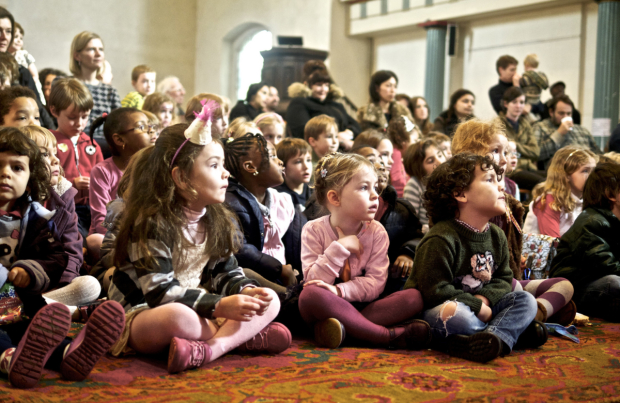Why the decline of school theatre trips is extremely worrying
Holly Williams considers the implications of a decline in schools taking children to the theatre

© Pedro Reyna/Flickr
Do you remember the first time you were taken to the theatre? If you’re reading this, the chances are, you do – and that first taste might well have been part of a school trip. But recent reports suggest such outings are increasingly endangered.
A survey by Shakespeare’s Globe earlier this year found that 44 per cent of pupils at an educational performance had never been to the theatre before, while a government survey showed the number of five-to-ten year-olds who had engaged with theatre had decreased from 47.1 per cent in 2008 to 31.1 per cent in 2016. There are further fears that, given the exclusion of drama from the English Baccalaureate, theatre trips will be dismissed as budget-draining fripperies.
You have to know what theatre is to consider a career in it
The topic was a hot one at the Olivier awards, where everyone from John Tiffany to Dreamgirls star Amber Riley spoke out about the need for arts education, with the latter commenting that "if I didn’t have the arts when I was younger in school I wouldn’t be here right now."
She’s right. You have to know what theatre is to consider a career in it, after all. And school trips are an essential part of spreading the bug. You go into the stalls thinking about what’s in your lunchbox, and come out starry-eyed at the power of Shakespeare.
That’s the hope – of course, it doesn’t always work. I’m sure many young people have been put right off by stodgy productions and dodgy curriculum-leeching tours. Growing up in Wales, I remember scorning a Macbeth where the witches spoke in Cornish – as if having to learn our own Celtic language wasn’t bad enough!
But my state school also had a terrific relationship with (now defunct) local company Theatr Powys, whose thrilling, participatory takes on Shakespeare changed my life. No exaggeration. And we were taken to see plays at the Globe and the RSC by brilliant, long-suffering teachers – my drama class managed to get our school banned from the last campsite in Stratford-upon-Avon; let’s just say, we took a very Henry IV approach to drinking.
For many people the introduction to the artform is only ever going to get made via school
But then, even Shakespeare on a hangover is better than Shakespeare drily read out of a book. As long as plays are on the curriculum, it’s no less than a dereliction of duty not to take kids to watch them. One, they’re an awful lot easier to understand. You get the gist; you don’t stumble on archaic terms when wading through the text, line-by-line. There’s an emotional connection. Some of the jokes are even funny.
And two, a play script simply isn’t a finished work. It would be like musing over Henry Moore’s maquettes instead of his monumental sculptures, or studying sheet music instead of without ever actually hearing Beethoven. A Pinter pause doesn’t carry much menace on the page; you need to be there, be in it.
Plus a script can never recreate the thrill of theatre’s liveness: a good performance has its own special alchemy. And you know what? Teenagers do too: they can be cynics, but they also have vast capacity for getting excited. I remember watching Coriolanus at the Donmar with a school group: they started giggly over Tom Hiddleston’s pecs, but soon were "oh my days"-ing in genuine outrage at Coriolanus’ exile.
But the other reason the school trip needs to be saved is to do with access and opportunity. For many people, who happen not to come from backgrounds where theatre is a ‘thing’, the introduction to the artform is only ever going to get made via school. This is vital.
School trips can foster a life-long sense of the theatre as a place for everyone
There should be no underestimating the impact your parents, and the sense of cultural ownership they instil in you, can have on your life. It’s pure privilege. And lucky me: my parents took me to the theatre (although not that often; living 75 miles from the nearest city, it’s a big commitment).
But I like to think that, even if they hadn’t, my rural state schooling would still have lit that flame. Because they recognised the value of giving children that live experience – all children, whatever their background.
My primary school managed to bus hundreds of us down to London to watch Oliver! and Starlight Express, in preparation for an annual summer show. I mean, recreating a West End musical on roller-skates, with under-11s? That’s the way to instil theatrical ambition! More formatively, it was on secondary school trips that I saw Phyllida Lloyd’s cross-cast Taming of the Shrew, watched Brechtian theory swing into life, and fell in love with Ridiculusmus. Would I be writing this without all those encounters? Maybe not.
Theatre always risks being elitist – or thoroughly middle-class, at the very least. And it shouldn’t be. One way to do this is to get ‘em while they’re young. School trips can foster a life-long sense of the theatre as a place for everyone. Which is surely invaluable.












